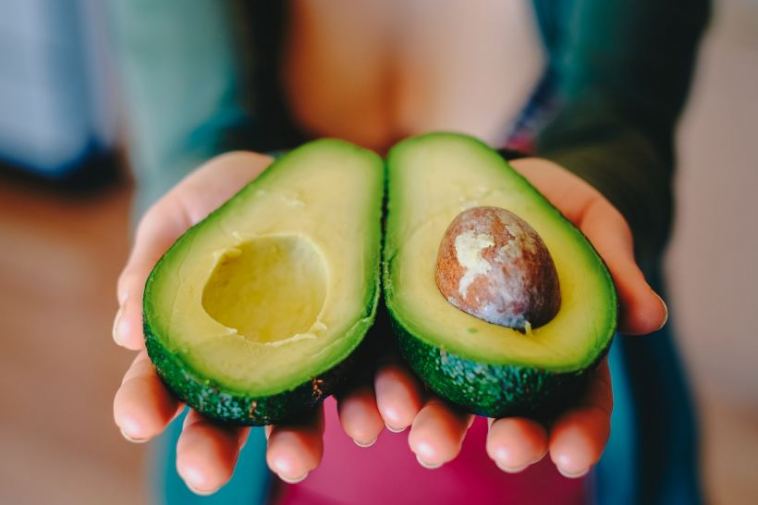- Like
- SHARE
- Digg
- Del
- Tumblr
- VKontakte
- Flattr
- Buffer
- Love This
- Save
- Odnoklassniki
- Meneame
- Blogger
- Amazon
- Yahoo Mail
- Gmail
- AOL
- Newsvine
- HackerNews
- Evernote
- MySpace
- Mail.ru
- Viadeo
- Line
- Comments
- Yummly
- SMS
- Viber
- Telegram
- JOIN
- Skype
- Facebook Messenger
- Kakao
- LiveJournal
- Yammer
- Edgar
- Fintel
- Mix
- Instapaper
- Copy Link
Introduction
You don’t need it to be a new year to introduce new healthy eating habits into your life, but any major transition is a great excuse to examine your wellness goals and set some new ones for the future.
Whether you’re just getting started with healthier eating or you’re trying to get back on track, simple tips can make a huge difference in getting you where you want to go. And as it turns out, a lot of us could use the help. About three-fourths of the U.S. population isn’t getting enough fruits, veggies, dairy, or healthy oils in their diet and the majority are exceeding the recommended daily amounts of sugar, sodium, and saturated fat. Yikes.
To bring more balance to your own diet, start with small, realistic habits that can provide you with more of what your body needs — and less of what it doesn’t. Here are six that can get you started in the right direction.
Identify your not-so-healthy habits first
Don’t fall into the trap of labeling foods as “good” or “bad,” but do try to pinpoint some of your current habits that you’d specifically like to address and change. Do you often find yourself snacking at certain times out of routine, instead of because you’re really hungry? Do you zone out watching TV while you eat and end up indulging past the point of fullness? By pinpointing precise areas where you could make a positive change, you can start to visualize what healthier eating habits might mean for you, instead of just in general.
Keep healthy snacks on hand…
The best way to take the guesswork out of healthy eating is to make it easy to choose nutritious grab-and-go snacks over non-nutritious ones. For example, stocking up on healthy nuts like almonds, cashews, and pistachios means that you’ll always have a quick way to up your intake of protein, fiber, and omega-3s and -6s, and they can also add variety and texture to salads, soups, and other meals. Some other healthy things to keep on hand include fruits (pre-slice them for an even easier option), whole grain crackers, and air-popped popcorn.
Avoid purchasing unhealthy snacks
In the same vein, if you don’t stock your kitchen with unhealthy snacks you don’t have to worry about grabbing them on a whim. Make things like cookies, brownies, and chips a once-in-a-while treat instead of an everyday thing by leaving them out of your grocery basket and your pantry. You can still enjoy them occasionally, but there won’t be a risk of constantly giving in to your cravings.
Follow healthy food trends
The top food and nutrition trends of 2021 are primarily centered around foods that provide more than just a full stomach — think immunity-boosting foods like turmeric and ginger, stress-reducing foods like fatty fish and dark chocolate, and heart-healthy foods like nuts and avocados, plus pre-packaged meal kits that do all of the hard work for you of sourcing wholesome ingredients for healthy meals. These trends prioritize eating foods that offer a wide spectrum of benefits, including your physical and mental health and the wider food environment.
Try eating intuitively
In its simplest definition, intuitive eating means eating when you’re hungry and stopping when you’re full. But it’s about more than just that. When you eat intuitively, you focus on eating things that fuel your body without denials or restrictions. The more you practice it, the more you discover that when you listen to what your body really wants and needs it’s usually going to be calling out for whole foods that nourish as opposed to processed foods that leave you feeling unsatisfied.
Ditch the “diet culture” mindset
The problem with the way that people traditionally approach dieting is that it’s always an all or nothing approach. But it’s perfectly human to slip up sometimes (or even often!). Be patient with yourself, and don’t expect yourself to eat all healthy all of the time. Remember, the goal is to adopt healthier eating habits — not to become an all-around wellness guru. Aim for balance and not perfection, and have compassion for yourself if you step off track.
The Takeaway
Make 2021 a year of self-care, and take action toward creating healthier eating habits that you can sustain throughout the next twelve months and beyond. The more that you make healthy eating part of your routine, the easier it becomes to keep it up — and the more natural it feels to do so. Start small or go big, and make sure to drop the idea of perfection along the way.
About Theresa Duncan
Originally from Detroit, MI, Theresa has been offering health and fitness advice for the last 30 years while working as an engineer. She decided to turn her passion into a profession, and finds nothing more satisfying than helping others reach their health and fitness goals.

